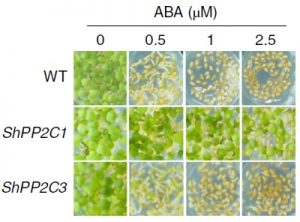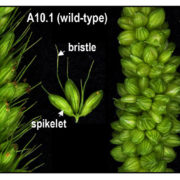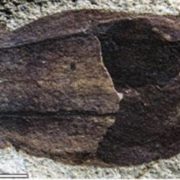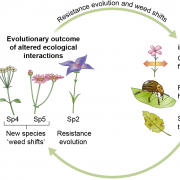An aberrant protein phosphatase 2C confers abscisic acid tolerance and drives high transpiration during drought conditions in a parasitic plant, Striga ($) (Nature Plants)
 Striga hermonthica is a parasitic plant which infects major crops in arid environments. The rate of transpiration in Striga is higher than that of the host plant, thus maintaining a water potential gradient from the host to the Striga plant. Until recently, the exact mechanism has been poorly understood. A recent study from Fujioka et al, uncovered the mechanism which underlies this phenomenon, namely that Striga plants do not respond to abscisic acid (ABA), the hormone responsible for stomatal closure, resulting in high transpiration even in low water conditions. Furthermore, the authors identified that a Striga protein phosphatase 2C (ShPP2C1) possesses mutations which inhibits its ability to interact with ABA. ShPP2C1 was transformed into Arabidopsis resulting in plants which were insensitive to ABA, indicating that the ShPP2C1 acts dominantly to negatively regulate ABA signaling. Taken together, these results present the mechanism behind Striga infections and offer insights into possible targets for preventing major crop losses caused by Striga. (Summary by Nick Segerson) Nature Plants 10.1038/s41477-019-0362-7
Striga hermonthica is a parasitic plant which infects major crops in arid environments. The rate of transpiration in Striga is higher than that of the host plant, thus maintaining a water potential gradient from the host to the Striga plant. Until recently, the exact mechanism has been poorly understood. A recent study from Fujioka et al, uncovered the mechanism which underlies this phenomenon, namely that Striga plants do not respond to abscisic acid (ABA), the hormone responsible for stomatal closure, resulting in high transpiration even in low water conditions. Furthermore, the authors identified that a Striga protein phosphatase 2C (ShPP2C1) possesses mutations which inhibits its ability to interact with ABA. ShPP2C1 was transformed into Arabidopsis resulting in plants which were insensitive to ABA, indicating that the ShPP2C1 acts dominantly to negatively regulate ABA signaling. Taken together, these results present the mechanism behind Striga infections and offer insights into possible targets for preventing major crop losses caused by Striga. (Summary by Nick Segerson) Nature Plants 10.1038/s41477-019-0362-7









